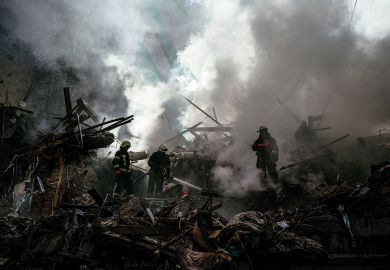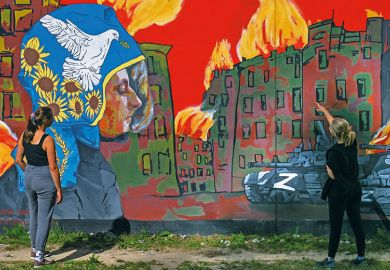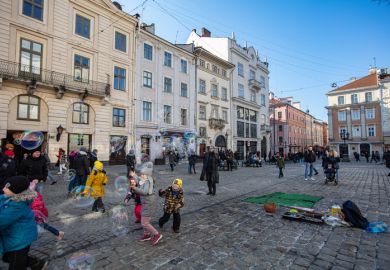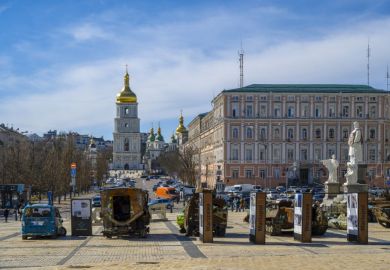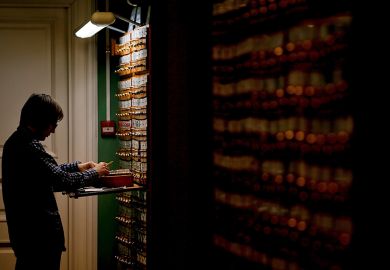Leading historians have joined an initiative founded by one of Ukraine’s richest industrialists to explore the country’s past, as it remains gripped in a bitter war with Russia that has at times threatened its future as an independent state.
Victor Pinchuk, a metal-working magnate whose wealth is estimated at $2.1 billion (£1.7 billion) by Forbes, has set up the Ukrainian History Global Initiative, a three-year project involving around 50 Ukrainian scholars and another 40 from around the world. He said that it would “provide countless refutations of Russian distortions”.
The project’s international academic advisory council is chaired by Timothy Snyder, Richard C. Levin professor of history at Yale University and a leading scholar of central and eastern Europe, with Serhii Plokhii, Mykhailo S. Hrushevs’kyi professor of Ukrainian history at Harvard University, and Yaroslav Hrytsak, professor of history at the Ukrainian Catholic University.
It comes as the war triggered by Russia’s invasion of Ukraine nears its third year, and as the study of the history of eastern Europe grows rapidly in popularity – and becomes heavily politicised. Long a part of the Soviet Union, the independent country has existed in its current form since 1991.
An announcement unveiling the initiative said that Ukrainian history was “central to global history, to an extent that can be hard to bear and hard to acknowledge”.
The project “aims to create a deep history of the lands and contemporary Ukraine and the peoples who have inhabited them”, exploring “subjects such as the origins of human settlement, the spread of Indo-European languages, the relationship between classical Greece and the Black Sea region, Viking-era Europe, Byzantium and Kyiv, the Renaissance and Reformation, as well as modern questions of nation-building and empire”.
The announcement added: “It is seeking indirectly to answer fundamental questions such as ‘Who are we?’ and ‘How was a nation possible?’”
Other members of the initiative’s advisory council include Barbara Engelking, director of the Polish Centre for Holocaust Research; Timothy Garton Ash, professor of European studies at the University of Oxford; and Maya Jasanoff, Coolidge professor of history at Harvard.
A board of trustees overseeing the initiative is chaired by former Swedish prime minister Carl Bildt.
Mr Pinchuk said that the project had been in the planning for four years but the war had given it “a new urgency”.
“What the results of our project will be I have no idea – but I am sure these results will provide countless refutations of Russian distortions, particularly powerful because they will have been created in freedom, exchange and critical discourse,” he said.
Mr Pinchuk added that his generation “has the unique chance to participate in building our country. But for this we need to understand who we are.”
Professor Snyder said that the “extraordinary circumstances of the moment generate questions that go beyond it”.
“There is much interesting to be said about the origins of our language, about the Bronze Age, about the Middle Ages, about modernity – from Amazons to Vikings, Ukraine is a territory where our standard view of history can be revised and made more vibrant,” he said.
Register to continue
Why register?
- Registration is free and only takes a moment
- Once registered, you can read 3 articles a month
- Sign up for our newsletter
Subscribe
Or subscribe for unlimited access to:
- Unlimited access to news, views, insights & reviews
- Digital editions
- Digital access to THE’s university and college rankings analysis
Already registered or a current subscriber?

